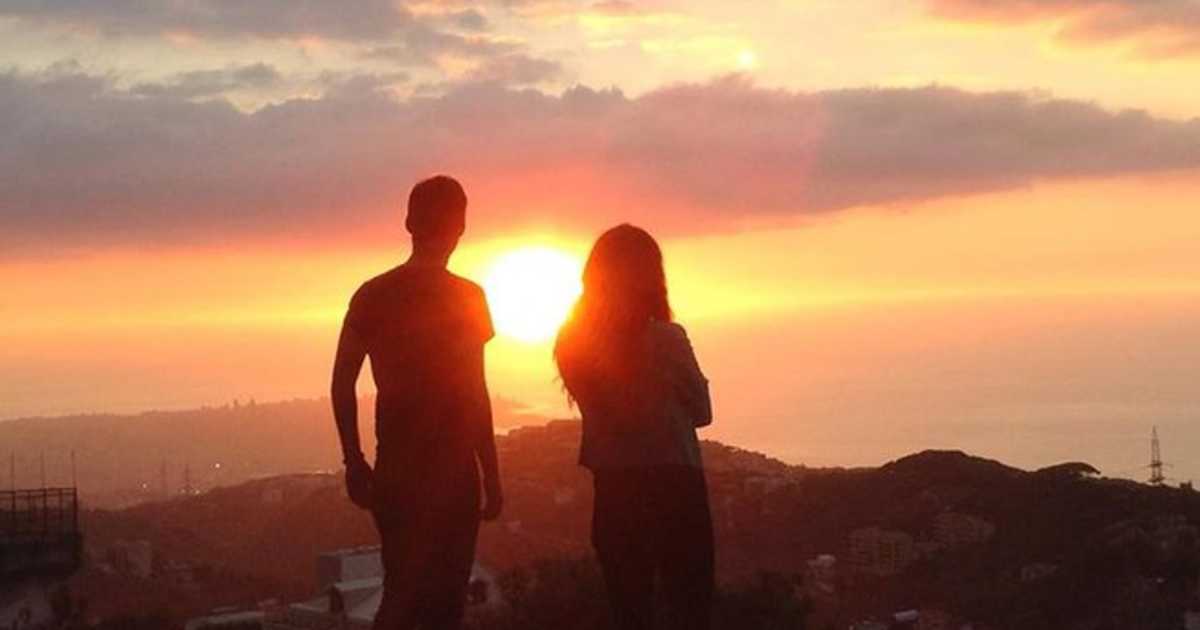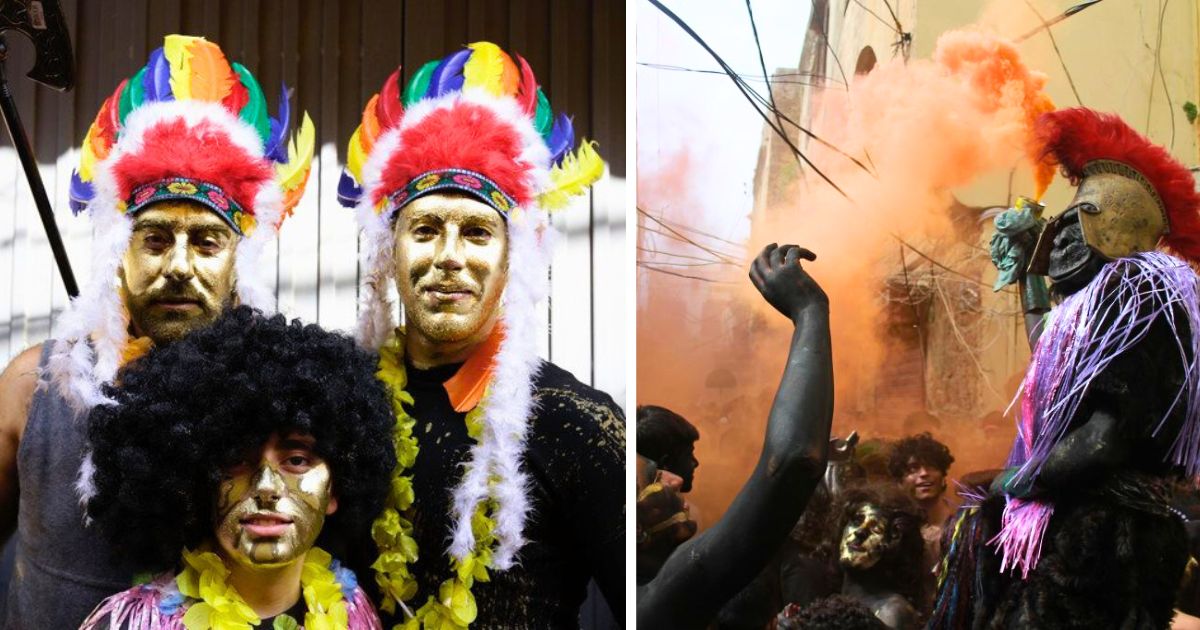If you pay close attention to the daily expressions in the Lebanese culture, you’ll realize how spiritual the people in Lebanon generally are… even if we don’t know it or acknowledge it.
From simple greetings and good wishes to future planning, these expressions are constantly on our lips in different situations and scenarios.
Some might take them lightly or for granted and some really mean them. The fact remains that their messages and intentions are there to reflect a culture of peace, faith, and love.
#1 Insha’Allah انشالله
You probably hear or say this expression a lot in your daily life in Lebanon, and which means “God willing.” While many of us mean it – such as in I’m traveling next week, Insha’Allah, or I’ll be home soon, InshAllah – many others just say it spontaneously without a second thought, especially in replies, like for example when we are told, “Come back visit us again,” and the spontaneous answer ensues, “InshAllah.”
#2 Ya Allah/Ya Rab يا لله – يا رب
“Ya Allah!” and “Ya Rab” are expressions calling to God, sort of like saying “Oh God” to ask for divine help in certain difficult or exasperating situations, even when the intention for that prayer is not necessarily consciously uttered.
#3 Hamdellah حمدلله
We tend to frequently use this expression that means “Praise be to God” to express gratitude in many different situations, and we use it more often than we consciously think about it. We almost always answer with Hamdellah when we are asked how we are or how our family or work is faring.
#4 Allah Ma3ak الله معك
While the English version of Allah Ma3ak is God be with you and is also used as God speed, its meaning is in fact “God is with you.”
It is a usual traditional greeting in Lebanon when we meet someone we know or when someone is leaving. They are actually wishes of divine blessing and peace.
#5 Ya3tik el a3fye الله يعطيك العافية
This is a very beautiful wish that we often say when we meet a person working or exhausted from work. It means “May He gives you health and vigor,” referring to God, as the original expression that is also commonly used is الله يعطيك العافية (May God gives you…).
One always replies to that expressed wish with also a similar spiritual wish, Allah ya3fik.
A shorten expression of the same we often use is El A3fiye العافية.
#6 Allahu A3lam الله اعلم
That expression, which we give as an answer to what we can’t know, means “God only knows.” It is a traditional expression used to express uncertainty about a question, or doubt about the correctness of a piece of information.
#7 Eza Allah Rad – In Allah Rad إن الله راد
Both these expressions, which we often used, have almost the same meaning: If God wills, and When God Wills.
We often utter them when answering about something we intend to do in the future. “Are you going to your friend’s party?” Iza Allah Rad. “Do I see you tomorrow?” In Allah Rad…
We similarly use them when speaking about our own plans “I will go buy some new equipment next week in Allah Rad.”
Somehow, this expression comes with a sense of assurance and hope about the uncertainty of a future matter.
#8 Wallah
This expression is used to make a promise of any kind as it means “By God.” We also use it to reinforce the credibility of what we are saying in a conversation, or as an argument that we are speaking the truth.
#9 Allah Ykhalik الله بخليك
Whether we are meaning it for the person we are talking to, or for his/her family or loved ones, this is a wish intending them with divine protection. It literally translates into “May God keep them,” but it actually means in our native language: “May God preserve your life and protect you.”
For example, this expression is very commonly used when someone is introduced to one’s child or children, and the person answers: “Allah Ykhalihom” or “Allah Ykhaliha.”
This expression is also used as “please” when pleading for something.
#10 Ismallah إسمالله
Another good wish we Lebanese express often to others, Ismallah intends to bring divine protection upon one’s possessions, or looks, or loved ones, particularly almost inevitably when talking about babies and kids who are assumed to be vulnerable to malicious envy or curse or evil eye.
Ismallah calls for “the name of God” upon them to protect them. It is intended as a blessing.
#11 Allah Yerhamo/Yerhama الله يرحمه
Said at every death and in all funerals, this expression that means “May God have mercy on him/her [soul]” reveals the Lebanese’s faith in God and in the afterlife.
#12 Min temmak a3 beb el sama من تمك لباب السماء
“From your mouth to the door of heaven” is often the immediate response of a Lebanese when told a good intended wish he/she hopes for.
When a Lebanese, for instance, is told “May God heal you” or “May God gives you success (in a project or exam),” the response that naturally comes out is “Min temmak a3 beb el sama.|
#13 Marhaba مرحبا
Little is known that this most common salutation in Lebanon and even in the Arab world actually means “God is love”. It is a Syriac term (Mar = Master or God, Haba = Love) that was initiated by the first Christians as a salutation that affirmed their belief.
The common belief is that the Arabic verb “rahabba” (“to welcome”) is a derivative of Marhaba.
#14 Ya fetteh, ya rezek يا فتــاح , يا رزاق
Mostly uttered when one wakes up to a new problem, this expression is actually an appeal to God for help, although many have come to use it as an exclamation for patience.
#15 Allah yesalmak الله يسلمك
This expression that means “God bless you with peace” or with good health is often the Lebanese response to people wishing healing (salemtak) to someone. But it is also used in other instances, like when we say thank you to an offer of assistance.
#16 Sallem idayki / Sallem ide’k سلم إيديكي
A similar expression to the above, this is often used when thanking someone for their assistance or for the work of their hands, including for a meal or a cup of coffee. It says “blessed be your hands.”
#17 Emwafak اموفق
Often say to wish good luck to someone, this word is a short expression of Allah Yewaf’ak, which means God helps you with your endeavor or in your trip, etc.
#18 Sabah El-Kheir صباح الخير
Many in Lebanon uses the French “Bonjour” to say “Good Morning” but many also still use the authentic morning salutation “Sabah El-Kheir” that wishes a “Morning of Blessings.”
#19 Massa’ El-Nour مساء النور
A beautiful evening salutation that many still use in Lebanon, Massa’ El-Nour wishes an evening of Light.
The list of such revelatory expressions doesn’t end here.
Point is, there is an exquisite beauty barely spoken in our interrelation and interaction with each other in Lebanon. It is in this spiritual spontaneity of ours that we all meet and feel as one nation in our daily life, whatever the religion and denomination we belong to.
For thousands of years, Lebanon has been that particular beauty. And the legacy continues…

















